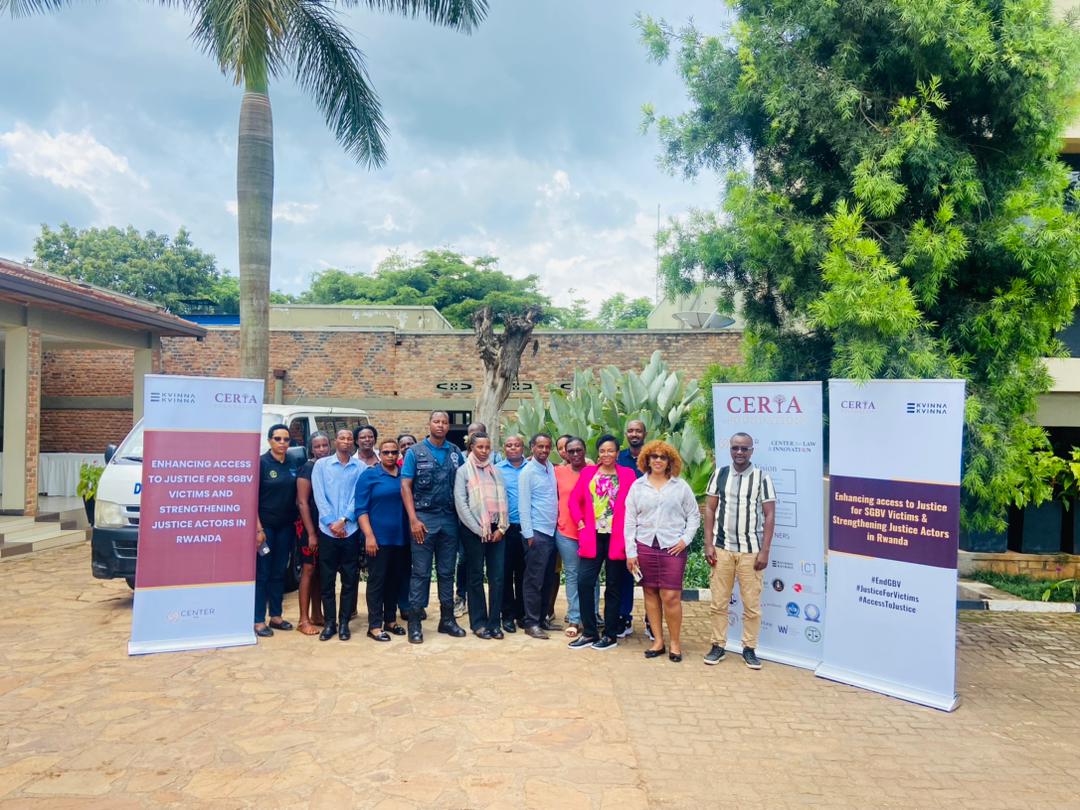Trauma-Informed Interviewing, Evidence Gathering, and Support for GBV Victims

On 31st October, The Center for Justice and Advocacy in partnership with The Kvinna till Kvinna Foundation under the expert facilitation of Me Uwizeyimana Dative, we hosted a transformative training workshop for justice actors from Rwamagana and Gatsibo districts, focusing on trauma-informed approaches, effective evidence-gathering, and survivor-centered support for Gender-Based Violence (GBV) cases.
The workshop emphasized a central principle: survivors are not just case files, they are human beings whose dignity, safety, and emotional well-being must guide every interaction.
Key Highlights:
- Understanding trauma: Justice actors explored how trauma impacts memory, behavior, and reporting. Participants learned to recognize trauma responses, fragmented memories, delayed reporting, and emotional withdrawal, not as dishonesty, but as natural reactions to violence.
- Practical scenario: Me Uwizeyimana Dative demonstrated victim fragility by placing a sheet of paper in water, showing how it softens and tears easily. She explained that victims’ resilience can be similarly weakened by repeated harm, and handling them roughly can exacerbate trauma.
- Evidence gathering in practice: Participants examined medical reports, forensic evidence, witness testimonies, and survivor statements. A notable discussion arose when Me Dative asked a RIB officer: “How do you handle evidence when the victim is male, and how do you prove rape?” This sparked a debate about gender, consent, and legal misconceptions, helping participants realize that rape is defined by violation, coercion, and absence of consent, not gender.
- Cross-sector collaboration: Emphasis was placed on coordination between police, prosecutors, health professionals, and community structures to ensure timely referral, safe evidence collection, and survivor protection.
- Victim-centered interviewing: Justice actors practiced empathetic, non-judgmental questioning, ensuring confidentiality and emotional safety, while avoiding re-traumatization.
At the close of the training, justice actors from Rwamagana and Gatsibo districts expressed deep gratitude to Certa Foundation and Me Dative for equipping them with practical skills, knowledge, and tools to support victims more effectively. Participants highlighted how the training shifted their perspectives on male victimhood, gender-sensitive approaches, and trauma-informed practices, reinforcing the importance of dignity and trust in justice processes.
Together, we continue to advance a justice system where every victim, regardless of gender, age, or location, feels seen, heard, and protected.
